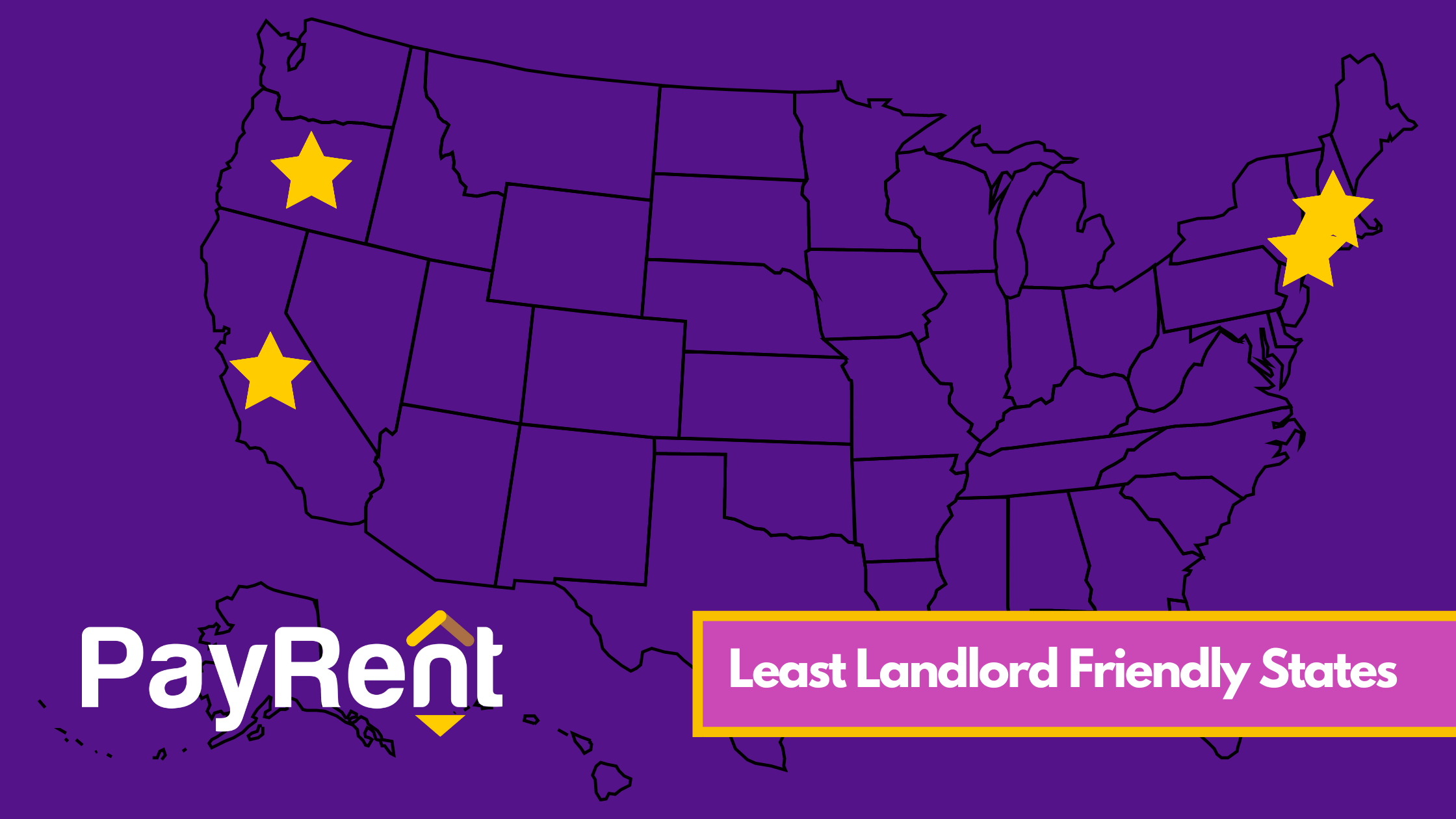No matter where you are in the nation, people need housing. That said, each state can create its own housing legislation. That means the rules that apply to an apartment complex in Indiana may not apply to a similar complex in California. As such, there are several states, that require more of their landlords. These least landlord-friendly states tend to be rougher on a landlord’s budget, but that doesn’t mean you can’t turn a profit. You just have to know what kind of rules you’re working with to work within the system.
The Landlord-Friendly States vs. the Unfriendly States
The quirks of landlord-friendly states can also help you identify states that may be harder on your budget. These include:
- Rent Control– When you lease a property, tenants’ rent becomes your primary form of income. If you want to turn a profit, you can raise that rent until you have enough money to live on. Some states make this process easy. Others limit the number of times or amount by which you can alter rent from year to year.
- Property Taxes– If you want to turn a regular profit, you’ll want to lease property in a state with a low property tax rate.
- Legislation Regarding Eviction– When you move to evict a tenant from your property, you’ll want to try and turn that loss over as quickly as possible. That gets easier when a state can expedite the eviction process. However, less landlord-friendly states can require you to give your tenants second chances or even delay the eviction process for more than three months.
The Least Landlord-Friendly States
States without landlord-friendly legislation aren’t unprofitable for landlords. Rather, these states strive to balance their tenants’ needs with landlords. With that in mind, states that are stricter with their leasing statutes include:
- New York: It’s become increasingly challenging to be a landlord in New York. The state recently implemented rent laws designed to limit rent spikes in urban areas and beyond. This legislation also limits charges for background checks, application fees, and security deposits. New York landlords also face late fee caps, meaning that most of your avenues for gaining additional income are limited.
- Oregon: As of 2019, Oregon implemented a state-wide policy designed to limit rent fluctuations. Nowadays, landlords may only raise the rent by 7% per year at most. Similarly, landlords have a more difficult time evicting any residents on their property who’ve rented with them for over a year, thanks to the state’s additional protections. Failure to comply with these tenant-friendly legislation comes with its own hitches, too. Any landlord caught violating these new laws may have to turn over three months’ rent to prosecuting tenants.
- California: California’s rent control varies from city to city. That said, the state as a whole has made it easier than ever for its cities to cap how much income a landlord may make off of a particular property. Landlords must comply with rent caps and caps on their security deposits, late fees, and extraneous costs during a tenant’s application process.
California also limits the tools landlords have when trying to evict residents. The state only allows landlords to enact just-cause evictions. While landlords may still remove a tenant, then, for damaging their property, landlords have less control over who may remain on their premises.
- New Jersey: Like many of its predecessors, New Jersey has strict rent control throughout its many counties. While these statutes vary on the local level, state-wide legislation is designed to keep money in tenants’ hands. These include:
- The Rent Security Deposit Act
- The Landlord Registration Act
- Tenants’ Right to Withhold
- Tenant Protection Against Retaliation
Combine these acts with New Jersey’s higher-than-average property tax rate, and the state isn’t the best for landlords looking to turn a quick profit.
Brace Your Budget: Leasing Lots in the Stricter States
There’s no such thing as an utterly landlord-unfriendly state. However, some states require more flexibility and forgiveness on the part of their landlords than others. Partner stricter legislation with a higher tax rate and these states can seem less financially viable for a landlord looking to example.
If you want to make the most out of your career as a landlord, though, there are tools that can make your job easier. PayRent is an online rent payment platform that makes it easier than ever for your tenants to pay their rent. Collaborate with the platform, and you can turn a profit in any state in the nation.





